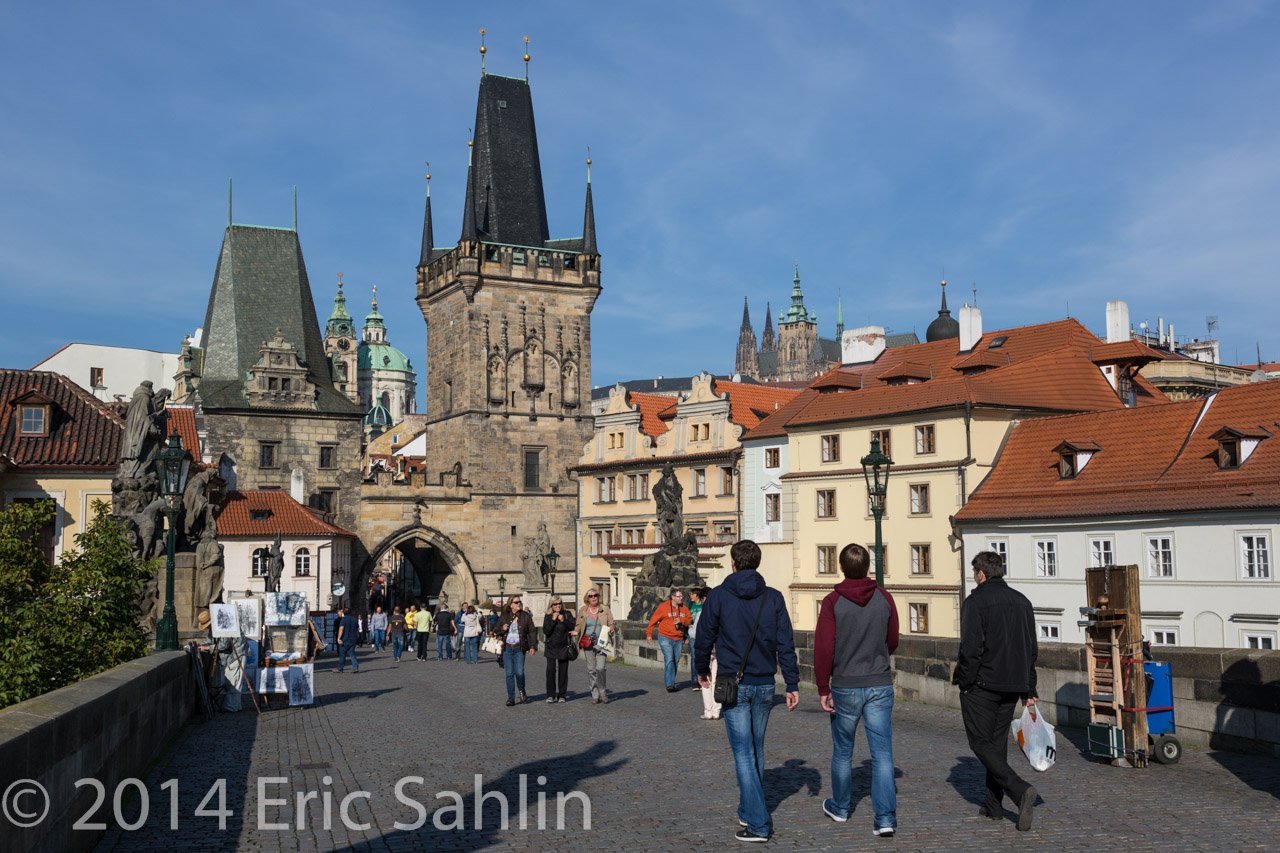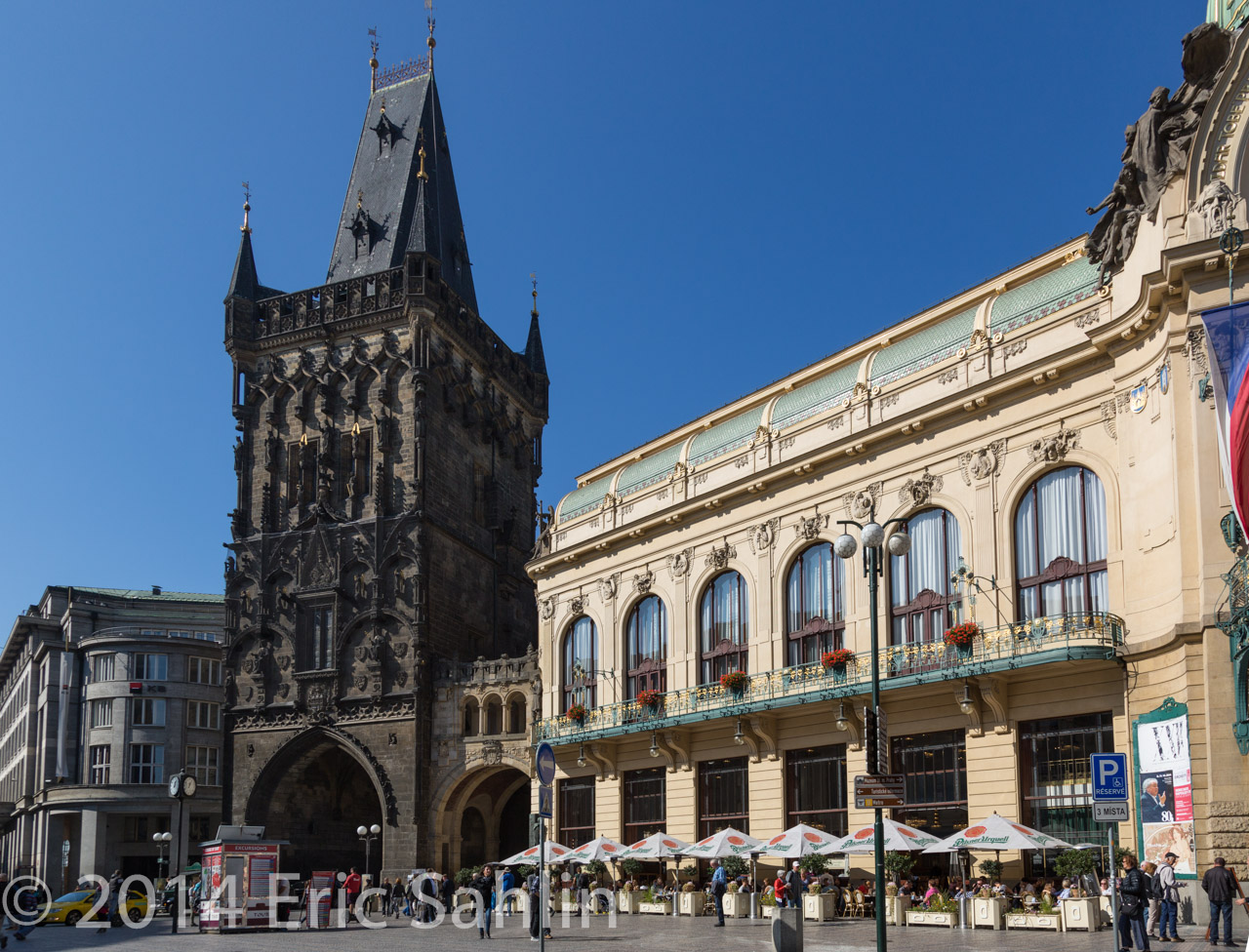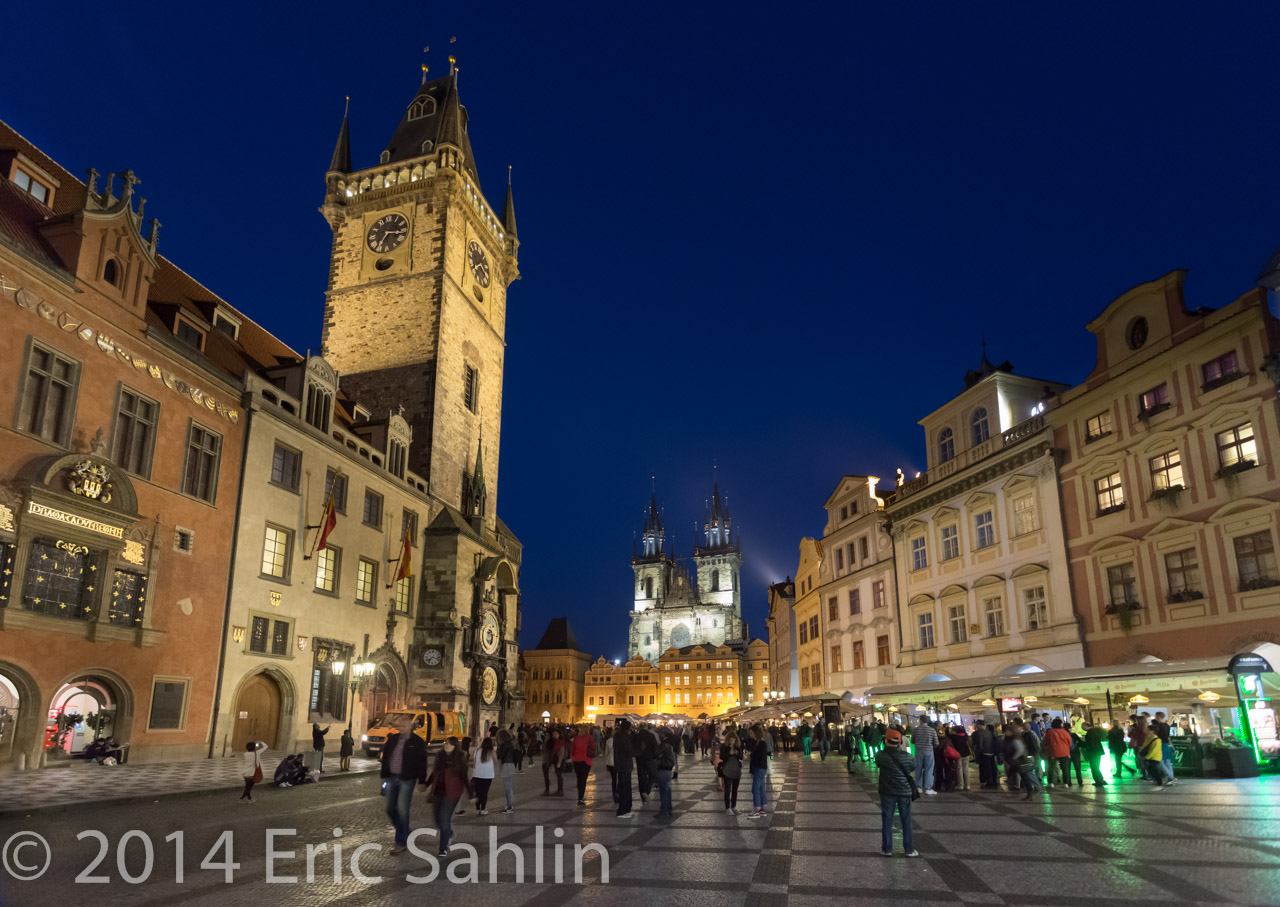
Both sides of the Bridge have towers. Prague Castle is in the background
This was my second trip to the city. The first was in 1995, only six years after the Velvet Revolution. I was forewarned that the city was already over run with tourists and that I should see it as soon as possible. I came by the overnight train from Berlin and arrived at 5am on a weekday. At the time I wasn’t preplanning too much so I hadn’t made any reservations, figuring I’d do it like all the previous cities and make them at the train station visitor’s office. Much to my surprise there was nothing open and not a person within a mile that even spoke a word of English. I could read the sign on the station windows that they would open at 9am. With the help of a crude map I made my way down to the shores of the Vltava River where I caught up on some sleep on a park bench until the tourism office was open. I was first in the line when the visitor office opened up but the person working there spoke very little English and the lonely Planet book didn’t help much. Fortunately a passing stranger helped me to ask for accommodation. There were very few affordable hotels located in the Staré Město (Old City) in fact the only accommodation I could get was in a Soviet era bunker at the end of the metro line which was about an hour out of the city.
After settling in I took the metro in and explored to old city area on foot. To my surprise, other than the few overpriced restaurants in the main square, the city was not over run with tourists. In fact, I had to seek out an expat bar just to have a conversation that didn’t involve something like Charades. While it wasn’t empty, it wasn’t over run by any stretch. There were so few English speakers that I had to spend most of my time in and immediately around the tourist traps by the Astronomical Clock to make sure I got something like what I ordered.
This trip, I wasn’t going to be caught as off guard. We rented an apartment for the week in the Nové Město (New Town) area -easily within walking distance of the Staré Město and close access to the metro for further travels. It was much more crowded than in 1995 but the City seemed to be handling it. We were able to shop at a local grocery that only spoke a little English and after you left the mob scene in front of the Astronomical Clock, all awaiting the animated parade of the Apostles which only occurs every hour, you didn’t have to go far to leave them behind. Although most sites were within easy walking distance of the Staré Město, we did make use of their punctual public transit system.

Prague is ranked fifth best European destination according to Tripadvisor and its old city is included in the Unesco list or World Heritage sites. The word “Bohemian” has its origin here as the region was settled by a Celtic tribe called the Boii around 200 BCE. It was once the seat of the Holy Roman Empire under Charles IV and was the site of one of the first Christian reformations led by Jan Hus nearly a century before Martin Luther. It is where the term “Defenestration” (the act of pushing someone or something out a very high window) was coined. In fact, they mark two seminal periods of their history by defenestrations: the first igniting the Hussite War and the second sparking the Thirty Years War in 1618. Its patronage of science and the arts include Tycho Brahe, Johannes Kepler, Albert Einstein , Wolfgang Amadeus Mozart, Antonín Dvořák , Bedřich Smetana, Ludwig van Beethoven, Rainer Maria Rilke , Franz Kafka, Milan Kundera and Miloš Forman who filmed Amadeus there.

Prague is one of the best preserved medieval cities primarily because it escaped two of the most destructive events in modern times. It escaped the carnage of World War Two because Hitler invaded and declared Bohemia and Moravia a German protectorate in 1939, unopposed -he even thought that one day he would retire in the city. The Soviet Union liberated Prague on May 5th 1945 forcing many Germans to flee the country. There was a popular uprising against the Soviet regime in 1968 but was quickly suppressed by their heavy military presence. In 1989, along with the crumbling of the Soviet Union, the Czechs peacefully overcame the Soviet grip on power with what became the Velvet Revolution. As a result, Prague has buildings (not just ruins) dating back to the 12th century, architecture spanning medieval through modern and a wealth of art and relics from its rich and influential history.
Regardless of when you get to it, Prague is one of the must see locations of Europe!































































